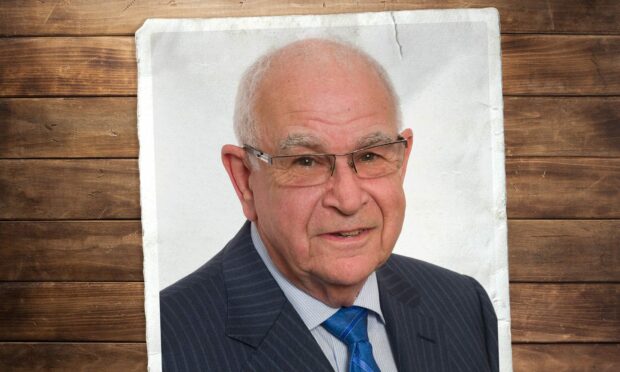Professor Francis Smith, the pioneer of diagnostic Magnetic Resonance Imaging (MRI) and a former Dundee United doctor, has died aged 79.
He applied how the MRI scanner, developed in Aberdeen by Professor John Mallard and Dr Jim Hutchison, could be used in a diagnostic clinical setting.
The breakthrough led to faster clinical examination and more accurate diagnoses of cancer and other conditions.
He was born in Essex to radiologist William (Bill) Smith and his wife Marianne.
Overseas
In the 1950s, the family moved to what was then Southern Rhodesia and Francis was educated in Salisbury along with his sister Mary.
At the age of 20 he came to the University of Aberdeen to study medicine and, in 1969, began work as a junior house doctor at Aberdeen Royal Infirmary where he continued to practice for almost 40 years.
Marriage
Shortly after, he met his future wife, Pamela, a senior nursing sister in accident and emergency at the hospital and the pair married in December 1970, six weeks after meeting.
After a time working and training in paediatric radiology at the Sick Children’s Hospital in Toronto, Professor Smith returned to Aberdeen to take the post of consultant in nuclear medicine and at this time he worked with the team to establish the diagnostic potential of the MRI scanner.
His daughter, Jane Allan said: “My dad started the world’s first clinical trial of MRI in 1980 and the world’s first diagnostic MRI service at Aberdeen Royal Infirmary in 1981.’’
Applications
Between 1980 and 1991 he worked in collaboration with a number of clinicians globally, exploring the applications of MRI, being first to show the potential of MRI to the examination of the abdomen and pelvis as well as for the study of pregnancy.
By the late 1980s, nearly 2,000 MRI scanners were in use worldwide, but Aberdeen was still using a second prototype developed by the university’s medical physics department.
Newspaper appeal
A £1 million appeal, Magiscan was launched by the Evening Express and Professor Smith played a central role in its success.
He worked tirelessly to raise awareness of the campaign, giving interviews to explain its importance, and promoting fundraisers which encouraged the people of Aberdeen and surrounding areas to give generously.
Newspaper appeal
The appeal met its target, and the new MRI scanner was operational by June 1992.
By November of that year, more than 900 people had been scanned and lives had been improved through this diagnostic intervention.
His research and knowledge were world renowned and his teaching of the use of MRI extended globally as he supported the development of MRI across hospitals and research centres.
He received his professorship during the 25th anniversary year of MRI.
Career progression
He finished his NHS practice at Woodend Hospital where he was senior consultant until 10 years ago when he left the NHS and started working at Medserena in Kensington, London, undertaking research to the benefits of using the upright MRI that had been developed by Fonar and Raymond Damadian, the original creator of MRI.
Professor Smith extended his medical interest to the application of sports medicine and associated injuries.
Sports expertise
Jane said: “He was an absolute expert in sports medicine. In addition to being a consultant radiologist specialising in musculoskeletal radiology he was an examiner for the Diploma in Sport and Exercise Medicine of the Faculty of Sport and Exercise Medicine from 1996 until 2018.
“From 2009 until 2012, and in 2016, he was visiting professor and external examiner in sports medicine for the University at the West Indies.”
Football
He was a Rotary member for around 30 years and through the organisation met Aberdeen businessman Bryan Keith, who owned Montrose FC.
Professor Smith was invited to become club doctor at Links Park and then moved on to Dundee United where he spent more than a decade as club doctor.
He became friends with former manager Jim McLean and travelled across Scotland and Europe with the team.
Peterhead
Professor Smith also made the acquaintance of United great Jim McInally who became Peterhead FC manager.
The two recently renewed their friendship and Jim invited Professor Smith to become club doctor at Balmoor Stadium.
With the recent global disruption due to COVID he left Medserena in London and joined the ROC private clinic at Westhill.
Tribute
A spokesperson for the ROC clinic said: “‘Professor Frank Smith played a critical role in the recent establishment of our imaging department, and he was never short of extending his assistance as ROC has grown.
“He was a wonderful role model for his team, clients, and co-workers, and will be sadly missed.”
Professor Smith is survived by his wife, Pamela, children Jane and James, grandsons Max, 22, who is studying medicine at the University of Glasgow, Theo, 14, and Sebastian, 6.

Conversation